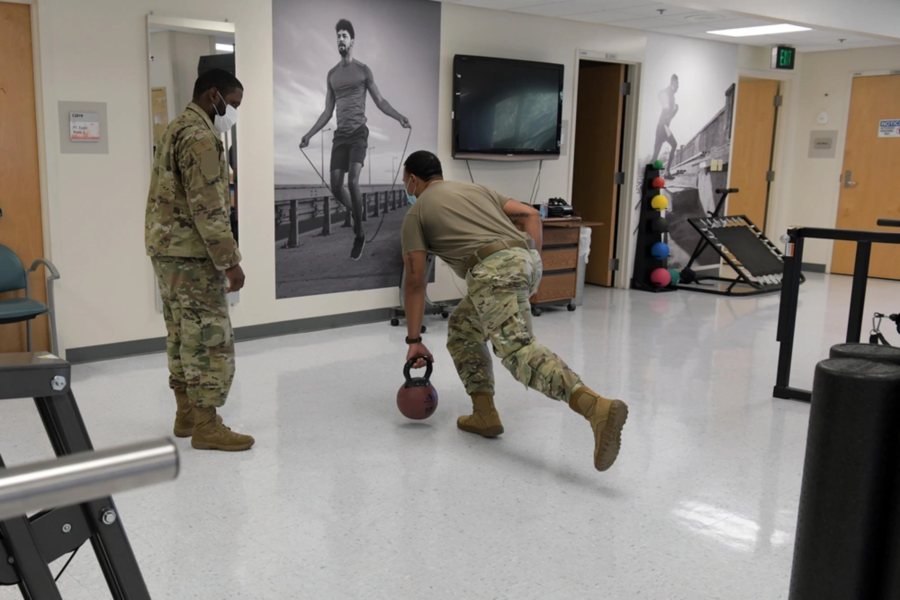About
The Functional Occupational Rehabilitation for Troops (FORT) study simultaneously evaluates the outcomes of functional restoration (to improve service member pain and functional capacity) and implementation facilitation (to successfully stand up functional restoration programs) through a hybrid type 2 stepped-wedge trial.
Clinical Arm of Hybrid Design
Clinical Intervention: FORT – a three week intensive Functional Restoration Program. To learn more, see the first article in this issue of the US Army Medical Department journal and in this patient oriented description from Dartmouth Health
Clinical Outcomes: Improvements in core outcomes of (1) pain, (2) physical functioning, (3) emotional functioning, (4) participant ratings of improvement and satisfaction with treatment, (5) symptoms and adverse events, and (6) participant disposition using the PASTOR system
Implementation Arm of Hybrid Design
Implementation Strategy: Implementation Facilitation
Implementation Outcomes: RE-AIM outcomes of Reach, Effectiveness, Adoption, Implementation, and Maintenance of FORT programs

For more information on hybrid designs and implementation research, please see our Implementation Resources. For more information on stepped wedge trial design, refer to the National Institute of Health’s Research Methods Resources on stepped wedge trials.
Outcomes
- Data collection has not yet begun.

